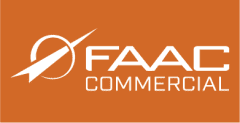Situational Awareness Training: Preparing Drivers for Safe Zero-Emissions Bus Operations
Published

Situational awareness has always been a core skill for transit Operators. Operators spend their days making split-second decisions, all while sharing congested roads with other drivers of uncertain skill, vehicles with unknown maintenance records, and unpredictable weather conditions that can make operating a bus treacherous. Todd Cheever, Director of Safety and Training for NICE (Nassau Inter-County Express) has noted: “[bus drivers] encounter ten times as many things each mile as a commercial pilot.” All of that was before we added the unique quirks and challenges of operating zero-emissions buses (ZEB). Distracted motorists and pedestrians have always been an issue for Operators, often claiming that a diesel bus the size of a whale and as loud as an alarm clock just “snuck up” on them or “appeared out of nowhere.” While a ZEB is just as big as a diesel, it’s substantially quieter. The average diesel bus generates around eighty to ninety-five decibels (dB) under normal operating conditions. That’s about the same level as an old gas-powered lawn mower. That operating noise provides early warning to someone whose eyes are on their phone instead of the road and is a vital (if unintended) safety feature for pedestrians with limited vision. Meanwhile, most ZEBs operate below sixty dB, which is about as quiet as a polite conversation. Some ZEBs can be nearly silent when traveling below twenty miles per hour.
Although quiet ZEB operation will be a welcome relief to our ears, it could cause big problems in our streets.
The Danger of “Whisper-Quiet” Streets
The quiet operation of electric vehicles has already been connected to an increase in the number of accidents for both pedestrians and cyclists. As of July 2021, in the European Union all electric cars must make an artificial noise (i.e., a so-called “AVAS,” Acoustic Vehicle Alert System) when traveling at low speed. For the past several years, London’s electric buses have likewise made an artificial sound (somewhat like elevator music on a space station).
But even with AVAS widely deployed, ZEB Operators will still need to be increasingly diligent to prevent accidents and protect the public. Simulation training has proven to be an excellent tool for increasing situational awareness for transit Operators.
The key is to have both an immersive hardware platform (like FAAC’s MB2000 bus simulator) and a diverse library of interactive training scenarios that cover a wide range of situations, conditions and behaviors. For example, FAAC’s included library simulates both standard driving challenges (e.g., erratic traffic, inclement weather, inattentive pedestrians or cyclists, traffic congestion, emergency vehicles, etc.) as well as ZEB-specific issues (e.g., thermal events, battery system faults, regenerative braking, make and model-specific vehicle dynamics, etc.). Every simulation in the library can be customized, and agencies can easily create their own custom scenarios as needed. During training sessions, the instructor can change the scenario in mid-course, taking control of simulated vehicles or pedestrians to interact with the trainee and keep them on their toes.
FAAC transit simulators can also run FAAC’s “Transit Response” human-interaction training system. Transit Response is built on the same platform the military, law enforcement agencies, fire brigades, and EMS use to train personnel in situational awareness, forward planning, and “stress inoculation.” It gives transit Operators and trainees a unique opportunity to hone the communication, decision-making, and situational awareness skills they need to handle a passenger interaction while safely operating their vehicle.
See How Simulation Can Prepare Operators
Seeing is believing. FAAC’s Transportation Business Manager, Jason Francisco, will be doing remote demos of the fully equipped MB2000 bus simulator upon request. Experience standard bus scenarios, ZEB-specific scenarios, and Transit Response for yourself, and learn more about what other major transit agencies are doing to pave the way for the ZEB transition.

